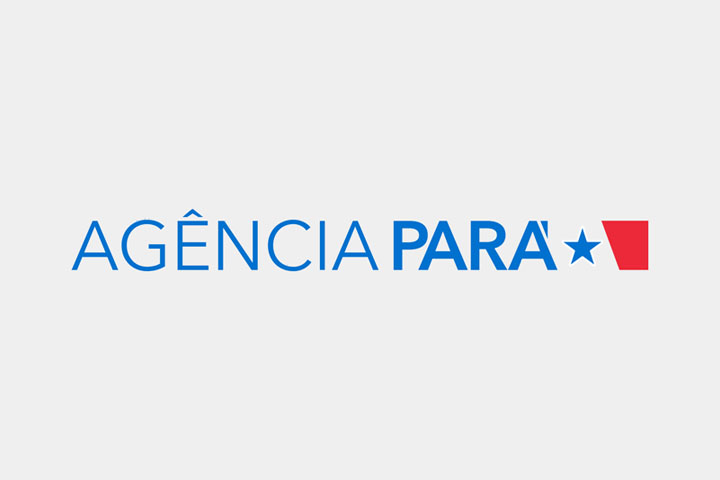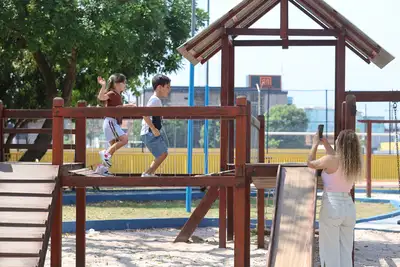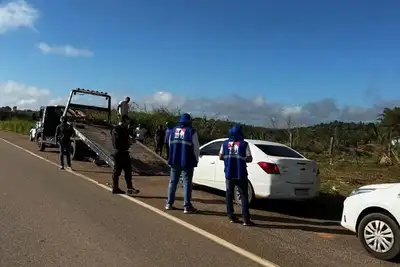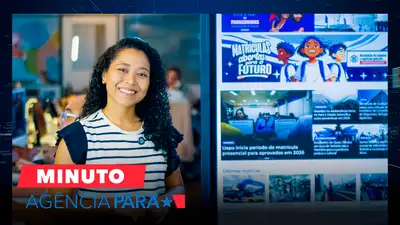Emater enables riverside dwellers of Nova Ipixuna to access public policies
The Technical Assistance Company (Emater) has contributed to family farming by ensuring the national registration of family farming (CAF)
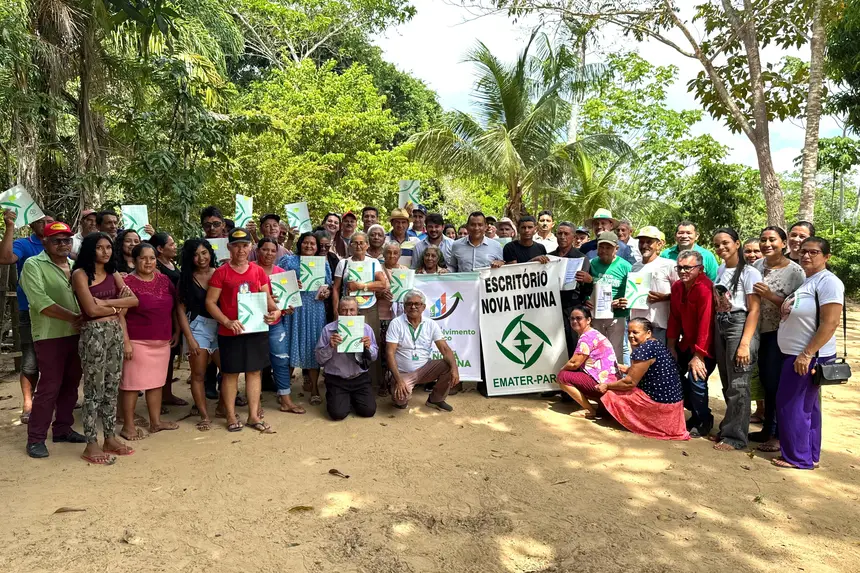
During the full moons, which Eliezer Oliveira, 58, refers to as "fishing season," he, who is the owner of Chácara Filadélfia, at Praia do Meio, in Nova Ipixuna, on the Tucuruí Lake, goes out in a canoe through the arms of the Tocantins River to fish for species like curimatã and piau: "The fish goes partly for us and partly to sell. It's an extra income," he reports. The main activity of the farmer and his wife, Maria Aparecida Oliveira, 56, is planting string beans in the floodplain.
Assisted by the local office of the Technical Assistance and Rural Extension Company of Pará (Emater), the family has just received the national registration of family farming (CAF) issued by that agency.
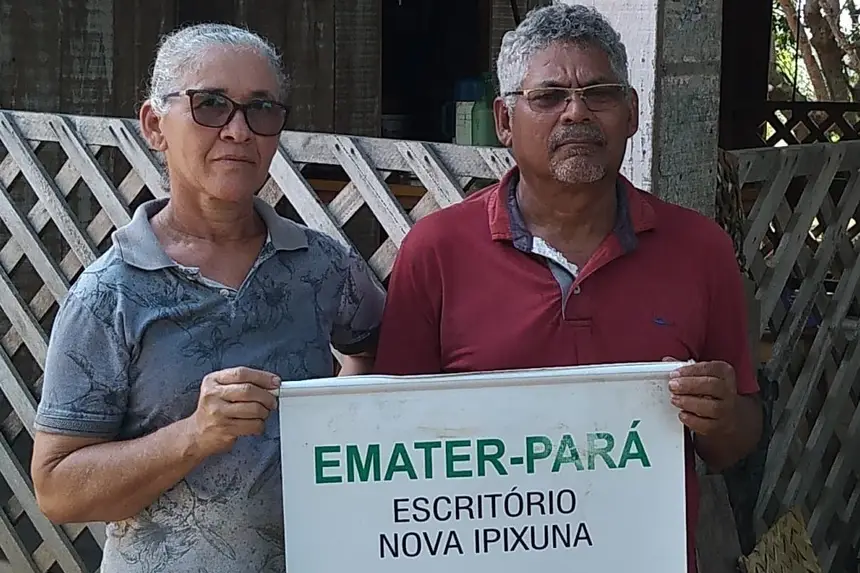
With the document, which is mandatory for accessing any public policies in the family farming sector, the goal now is to plan for rural retirement, before the National Institute of Social Security (INSS), and prepare for a rural credit contract with the Bank of the Amazon (Basa).
“As we age, we had the immense concern about rural retirement, to prove it. The CAF is a general registration of the farmer; it is our identity on paper. We are very happy with this achievement in which Emater and the City Hall helped us,” says Eliezer Oliveira.
Regarding rural credit, Eliezer is thinking of buying a tractor to assist in preparing the area for planting: “Doing everything without machinery delays, tires, and the yield is much lower. A tractor will be of great, very great value,” he estimates.
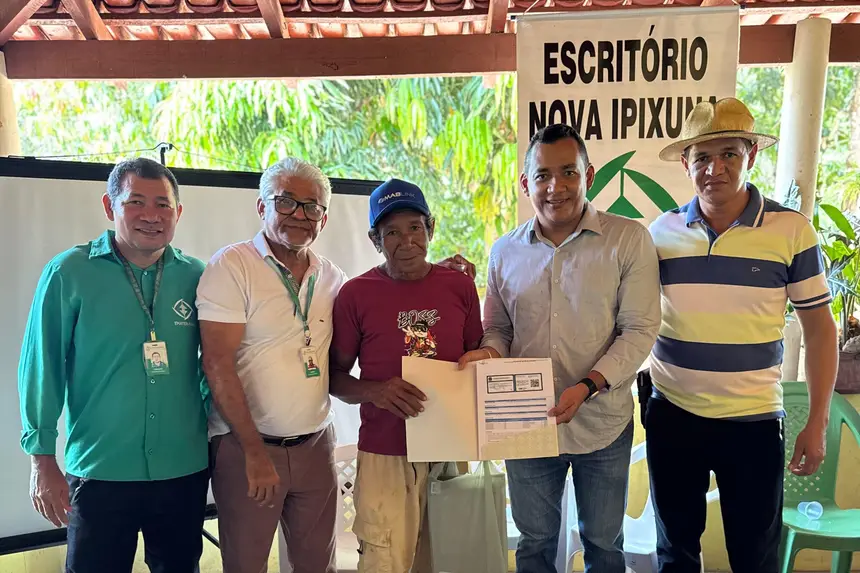
The head of the local Emater office in Nova Ipixuna, agronomist Genival Reis, a specialist in Small and Medium Animals, informs that the CAFs open the doors to public policies and that the most immediate goal is the Food Acquisition Program [PAA].
“The first focus is commercialization for the PAA and later for the Pnae [National School Feeding Program]; soon after, the microcredit from Pronaf [National Program for Strengthening Family Farming] B. Praia do Meio is the community that produces the most vegetables in Nova Ipixuna. They only sell these products to intermediaries. They have small lands: they work in a floodplain system. It is a permanent preservation area,” ponders the Emater manager.
Event
The Oliveiras are one of the 30 families living at Praia do Meio. On Wednesday (25), the families received the CAF from Emater at an event organized in partnership with the municipal government, with the support of Basa, at Sítio São Paulo, of producer Paulo Fernando da Silva.
In addition to the delivery of CAFs, the 'Conversation Circle' program offered training on good practices in the cultivation of green beans, free-range chickens, cassava, and okra, with an emphasis on the correct disposal of solid waste.
Located 95 km from the municipal seat, via the Tocantins Vicinal, from highway PA-150, the riverside community has a history and tradition of artisanal fishing, taperebá extraction, and planting pumpkin, banana, beans, cassava, watermelon, corn, cucumber, and okra.
According to the agricultural technician and pedagogue from the local Emater office in Nova Ipixuna, Claudean Marinho, the concept of “good practices” in question details several guidelines: “For example: selection of cassava seeds, control of the yellow cowpea pest on beans, control of verminosis in free-range chickens, production of okra seedlings, control of leaf-cutting ants,” explains Claudean.
Text by Aline Miranda


